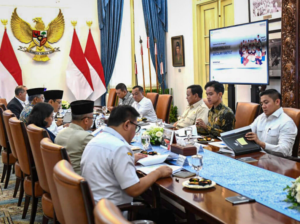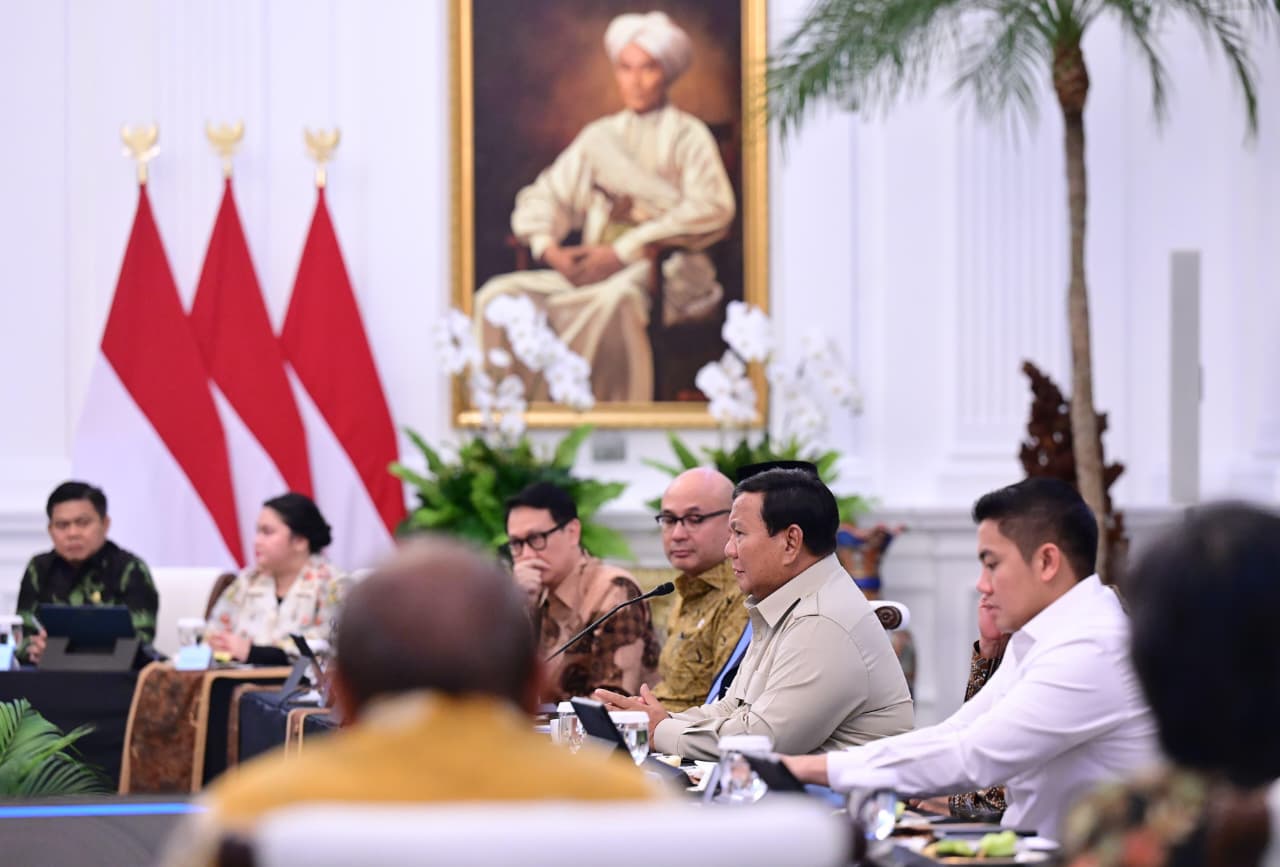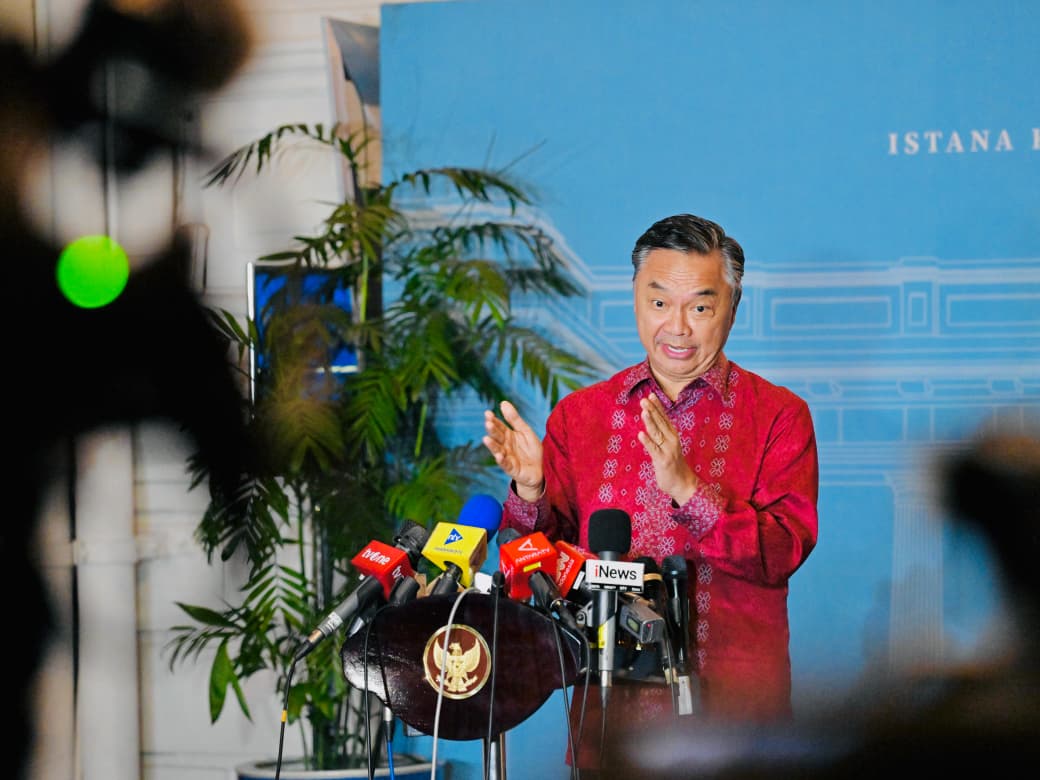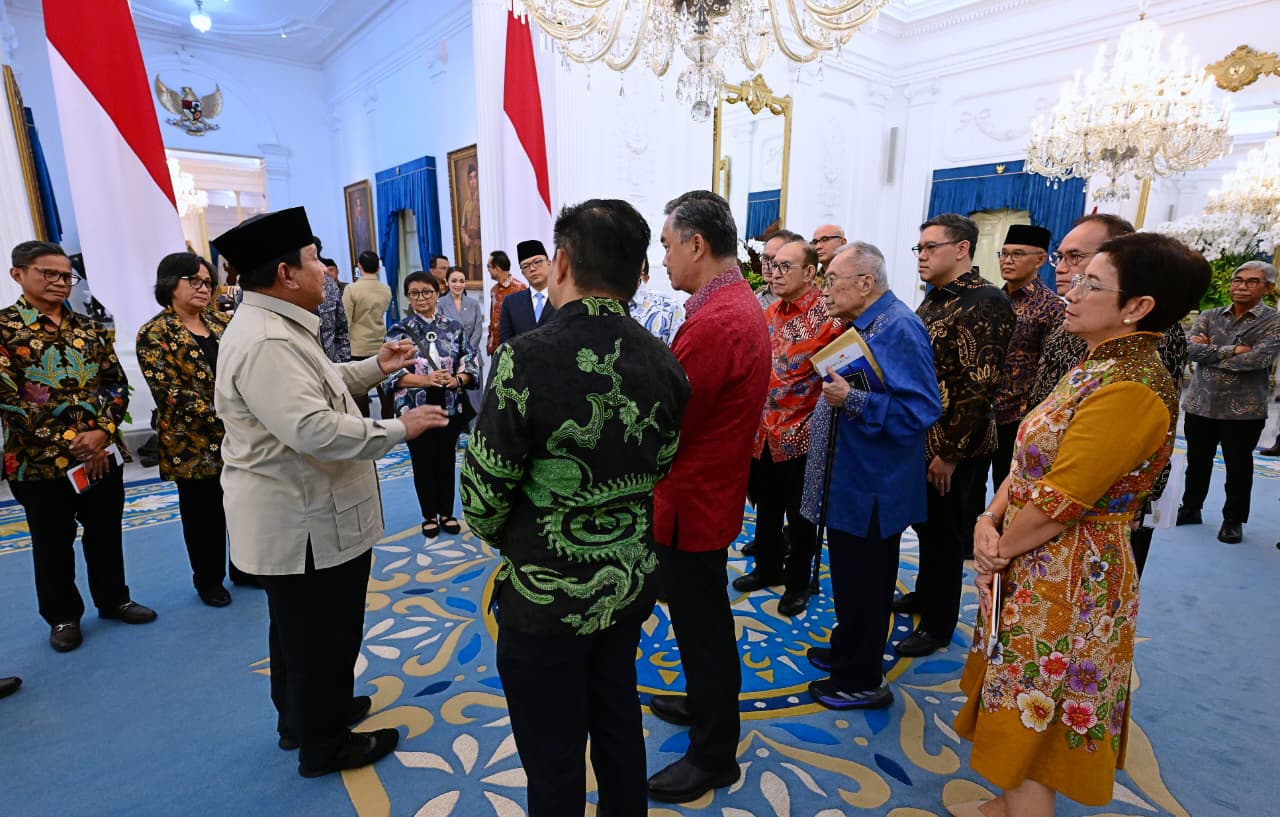President Prabowo Discusses Progress of Community Schools in Limited Meeting

President Prabowo Subianto chairs a limited meeting accompanied by Vice President Gibran Rakabuming and attended by several Red and White Cabinet members at the Merdeka Palace, Jakarta, on Wednesday (4/30). (Photo by: BPMI of the Presidential Secretariat)
President Prabowo Subianto chaired a limited meeting discussing the progress of the Sekolah Rakyat (community schools) program at the Merdeka Palace, Jakarta (4/30). Vice President Gibran Rakabuming and several members of the Red and White Cabinet were also attending this meeting.
Sekolah Rakyat program is designed as a concrete step to expand education access for the poor and super-poor families, especially those in Desil 1 – the household belongs to the 1-10% group of households with the lowest welfare level in Indonesia.
In the limited meeting, President Prabowo ordered that Sekolah Rakyat be carried out with careful and data-based planning. In the first phase, the Sekolah Rakyat program will be implemented in 53 designated locations as stated by the Minister of Social Affairs Saifullah Yusuf (Gus Ipul).
“The President ordered that the implementation of Sekolah Rakyat in 53 locations be well prepared. From the planning to the running of the school and forward,” said Gus Ipul in his statement to the press after the limited meeting.
President Prabowo also called for the student recruitment process to be conducted selectively and on target according to the rules. “The President ordered that the student recruitment process should be conducted according to the rules and avoiding deviousness, resulting in those who get accepted are on target,” he affirmed.
In addition to the existing 53 Sekolah Rakyat, the Government has prepared 200 other potential locations to build Sekolah Rakyat in areas with a high poverty rate and land readiness. These locations are now being surveyed and examined by the Ministry of Public Works.
Meanwhile, the Minister of Primary and Secondary Education, Abdul Mu’ti explained that an integrated recruitment for education personnel of Sekolah Rakyat will be conducted for three categories – teachers, school principals, and educational staff. According to him, the recruitment process will be based on the recruitment scheme for State Civil Apparatus teachers and Government Employees with Work Agreement teachers.
“On principle, we will coordinate the fulfillment of the educational personnel of Sekolah Rakyat as ordered by the President,” said Abdul Mu’ti.
He also explained that Sekolah Rakyat will implement a flexible multi-entry and multi-exit system. This system will allow the students to finish school based on their educational background and ability.
“Sekolah Rakyat will implement the same curriculum as other formal schools do, but here, the students can enroll at anytime and do not necessarily start at the same grade since it will be decided based on their educational background and ability,” stated Abdul Mu’ti.
Meanwhile, Head of Statistics Indonesia (BPS) Amalia Adininggar Widyasanti emphasized that the Sekolah Rakyat program is a clear example of evidence-based policy application. BPS also provides full support by providing data through the National Socio-Economic Survey (SUSENAS) and the National Social and Economic Single Data (DTSEN) to map the location of Sekolah Rakyat.
“We have confirmed that the 53 Sekolah Rakyat proposed by the Minister of Social Affairs are indeed in areas that are not only pockets of poverty but also have many school-age residents who do not attend school. Sekolah Rakyat can provide an opportunity for these school-age populations who previously did not have access to school,” Amalia explained.
Through cross-ministerial coordination and strong data support, the Government expressed hope that the implementation of Sekolah Rakyat can be a breakthrough in tackling structural poverty through inclusive and sustainable education. (Bureau of Press, Media, and Information of the Presidential Secretariat) (TCUD/MUR)








